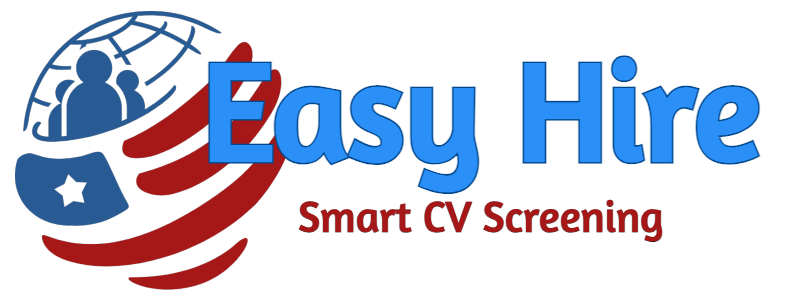The Role of Machine Learning in AI-Powered Hiring
Exploring machine learning's role in AI-powered hiring processes.
The Role of Machine Learning in AI-Powered Hiring
AI is transforming the recruitment landscape, and at the heart of this revolution lies machine learning. From automating repetitive tasks to reducing bias and improving candidate experiences, machine learning is reshaping how companies hire top talent. But what exactly is its role in AI-powered hiring, and how can your organization leverage it effectively?
This comprehensive guide explores the role of machine learning in AI-powered hiring, its benefits, challenges, and actionable steps to implement it in your recruitment process. Whether you’re an HR professional, recruiter, or business owner, this article will equip you with the knowledge to stay ahead in the competitive hiring landscape.
What is Machine Learning in Recruitment?
Machine learning (ML) is a subset of artificial intelligence that enables systems to learn from data, identify patterns, and make decisions with minimal human intervention. In recruitment, ML algorithms analyze vast amounts of candidate data—such as resumes, social profiles, and assessment results—to predict the best fit for a role.
For example, ML-powered tools can:
- Screen resumes faster and more accurately than manual methods.
- Match candidates to job descriptions based on skills, experience, and cultural fit.
- Predict candidate success by analyzing historical hiring data.
By automating these tasks, machine learning frees up recruiters to focus on strategic activities like building relationships and improving the candidate experience.
Why is Machine Learning Important in Hiring?
The recruitment process is often time-consuming, costly, and prone to human bias. Machine learning addresses these challenges by:
- Improving Efficiency: Automating repetitive tasks like resume screening reduces time-to-hire.
- Reducing Bias: ML algorithms can be trained to ignore demographic information, promoting fairer hiring practices.
- Enhancing Candidate Experience: Chatbots and personalized communication tools powered by ML improve engagement.
- Data-Driven Decisions: ML provides actionable insights based on historical and real-time data.
According to a report by McKinsey, companies using AI and ML in hiring have seen a 30% reduction in hiring costs and a 50% improvement in candidate quality.
Key Benefits of Machine Learning in Recruitment
1. Faster and Smarter Resume Screening
ML algorithms can analyze thousands of resumes in seconds, identifying the most qualified candidates based on predefined criteria. This eliminates manual screening and ensures no top talent slips through the cracks.
2. Improved Candidate Matching
By analyzing job descriptions and candidate profiles, ML tools can match applicants to roles with higher precision, considering factors like skills, experience, and cultural fit.
3. Bias Reduction
Machine learning can help reduce unconscious bias by focusing on objective data points, such as skills and qualifications, rather than subjective factors like name, gender, or age.
4. Predictive Analytics
ML models can predict a candidate’s likelihood of success in a role by analyzing historical hiring data and performance metrics.
5. Enhanced Candidate Engagement
AI-powered chatbots and personalized communication tools keep candidates informed and engaged throughout the hiring process, improving their overall experience.
Challenges and Misconceptions
While machine learning offers numerous benefits, it’s not without challenges:
1. Data Quality Issues
ML algorithms rely on high-quality data. Inaccurate or biased data can lead to flawed predictions and decisions.
2. Over-Reliance on Automation
Some fear that ML will replace human recruiters entirely. However, ML is designed to augment human decision-making, not replace it.
3. Ethical Concerns
There’s a risk of perpetuating bias if ML models are trained on biased data. Organizations must ensure transparency and fairness in their AI systems.
How to Implement Machine Learning in Your Hiring Process
Step 1: Identify Pain Points
Determine which aspects of your hiring process could benefit most from automation, such as resume screening or candidate matching.
Step 2: Choose the Right Tools
Invest in AI-powered recruitment platforms that leverage machine learning, such as Easyhireapp.
Step 3: Train Your Team
Ensure your HR team understands how to use ML tools effectively and interpret their insights.
Step 4: Monitor and Optimize
Regularly review the performance of your ML tools and make adjustments as needed to improve accuracy and fairness.
Future Trends in Machine Learning for Hiring
- Hyper-Personalization: ML will enable even more personalized candidate experiences, from tailored job recommendations to customized communication.
- Advanced Bias Detection: New algorithms will better identify and eliminate bias in hiring processes.
- Integration with Other Technologies: ML will increasingly integrate with tools like virtual reality (VR) for immersive candidate assessments.
FAQ
Q: Does machine learning replace human recruiters?
A: No, machine learning enhances recruitment by automating repetitive tasks, allowing recruiters to focus on strategy and relationship-building.
Q: How does machine learning reduce bias in hiring?
A: ML algorithms can be trained to ignore demographic information and focus on objective data points like skills and qualifications.
Q: What are the risks of using machine learning in hiring?
A: Risks include data quality issues, over-reliance on automation, and potential ethical concerns if models are trained on biased data.
Conclusion
Machine learning is a game-changer for AI-powered hiring, offering unparalleled efficiency, accuracy, and fairness. By understanding its role and implementing it strategically, your organization can transform its recruitment process and stay ahead in the competitive talent market.
Ready to explore how machine learning can revolutionize your hiring? Visit Easyhireapp to learn more about our AI-powered recruitment solutions.
For more insights on how AI can improve diversity in hiring, check out our article on How AI Improves Diversity Hiring.
